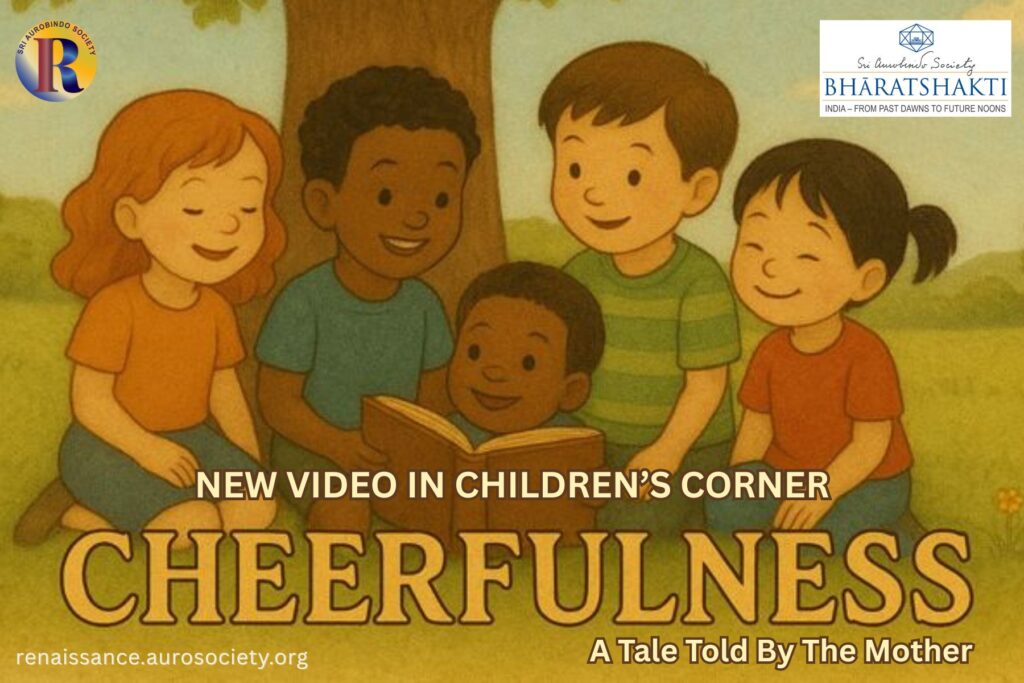Volume II, Issue 3
Author: The Mother
Editor’s note: “Youths’ Noble Path: A volume of moral instruction designed for the use of children, parents, and teachers and mainly based on Eastern tradition, poetry, and history’’ is a book of short stories written by F. J. Gould (1911). The Mother translated and adapted some of the stories from Gould’s book into French, for the children of the Ashram school.
In 1946, these were published by Sri Aurobindo Ashram under the title Belles Histoires. English re-translations of these adaptations were brought out in 1951 under the title Tales of All Times. These stories are now included in Volume 2 of the Collected Works of the Mother. We have selected a few stories from the series of stories on Sincerity.

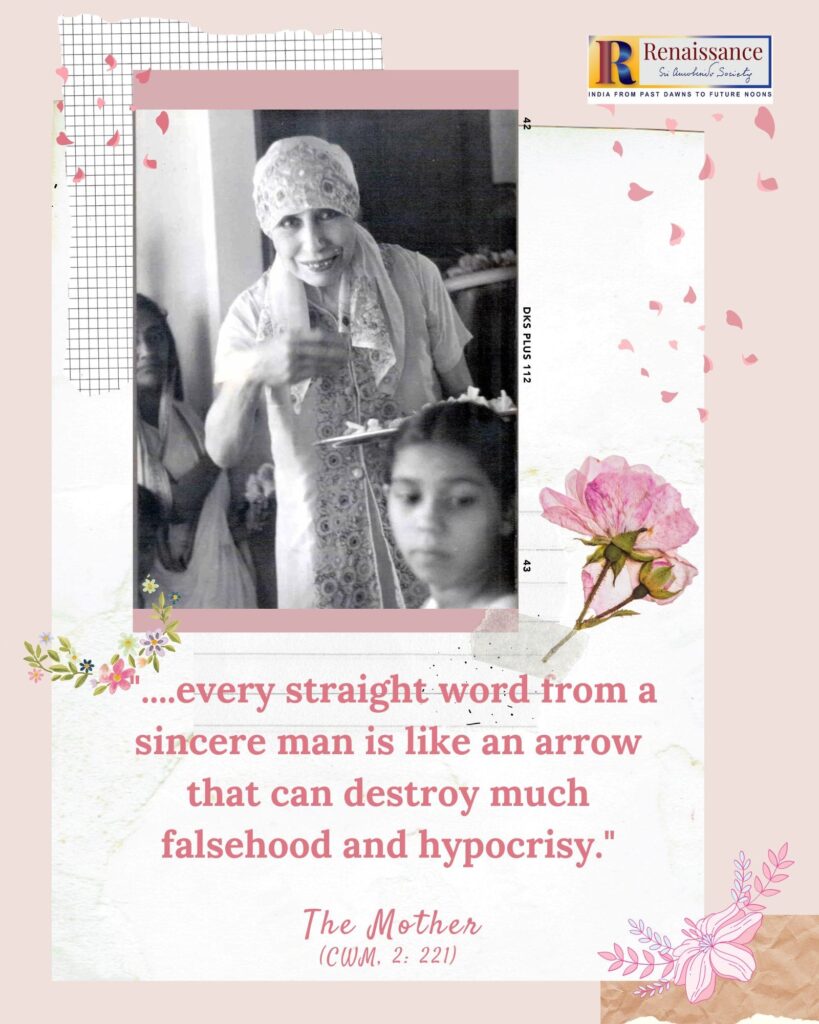
A Story about a Lion, a Wolf and a Fox
A lion, a wolf and a fox went out hunting together. They killed an ass, a gazelle and a hare.
Seeing this catch, the lion said to the wolf:
“Kindly tell me, friend wolf, how we should divide this game.”
“There is no need,” replied the wolf, “to cut up the three animals. You take the ass, let the fox take the hare, and for my part I shall be content with the gazelle.”
The lion’s only answer was a roar of fury, and with a single blow, as reward for his advice, he crushed the wolf’s head with his claw. Then the lion turned to the fox and said:
“And, my dear friend, what do you suggest?”
“Oh, Sire,” the fox replied with a deep bow, “it is a very simple matter. You should have the ass for your breakfast, the gazelle for your evening meal, and eat the hare as a light snack in between.”
“Very well,” said the lion, pleased to have all the game for himself. “And who taught you to speak with such wisdom and justice?”
“The wolf,” the fox replied slyly.
Why did the fox speak in this way? Was it to say what he really thought? Oh, certainly not! Was it then a sincere wish to please the lion? Certainly not that either. He spoke like that because he was afraid, and we can surely make allowances for him. But nevertheless we must admit that his words were not truthful—merely artful. And if the lion approved of them, it was because he loved meat, not truth.

Vishvamitra and Vasishtha: Speaking the Truth Without Any Fear
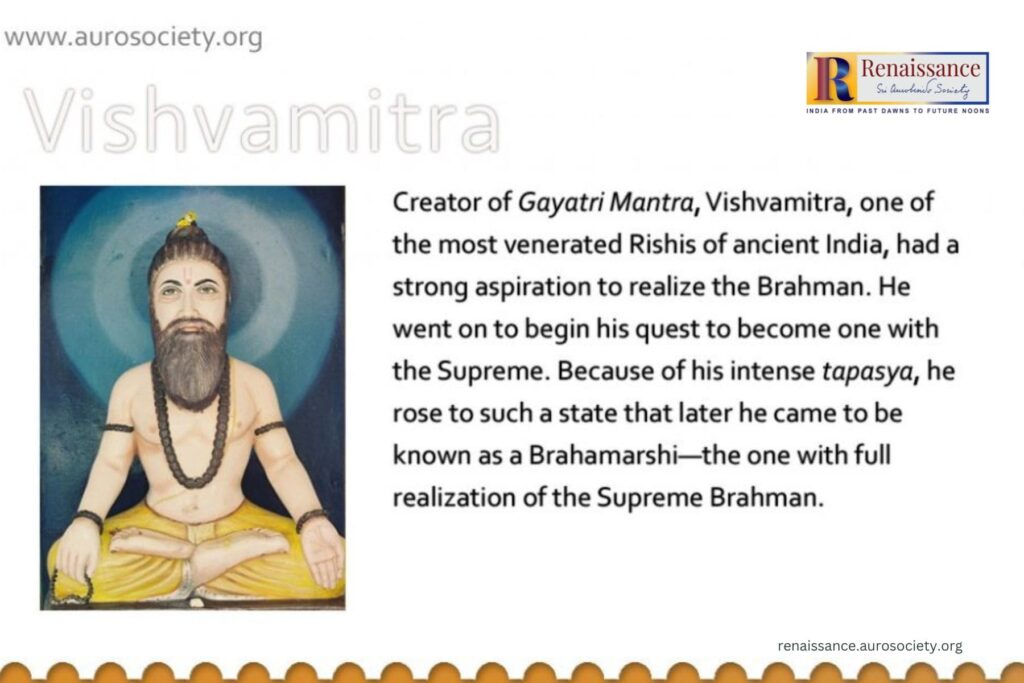
A rich and mighty king named Vishvamitra, who longed for greater esteem, resolved to practise Tapasya (austerities) in order to rise from his own caste of Kshatriya to the highest of all, that of a Brahmin.
He did all that he thought was needed and led a life of apparent austerity which made everyone say, “The king deserves to be a Brahmin.”
But the Brahmin Vasishtha did not think so, for he knew that Vishvamitra had acted out of vanity; his renunciation was not sincere. And so he refused to address him as a Brahmin.
In his fury the king had a hundred children of Vasishtha’s family put to death. But in spite of all his grief, Vasishtha persisted in his refusal to say what he did not think was true.
So the king resolved to kill this truthful man as well. One night he went to Vasishtha’s house to carry out the evil deed.
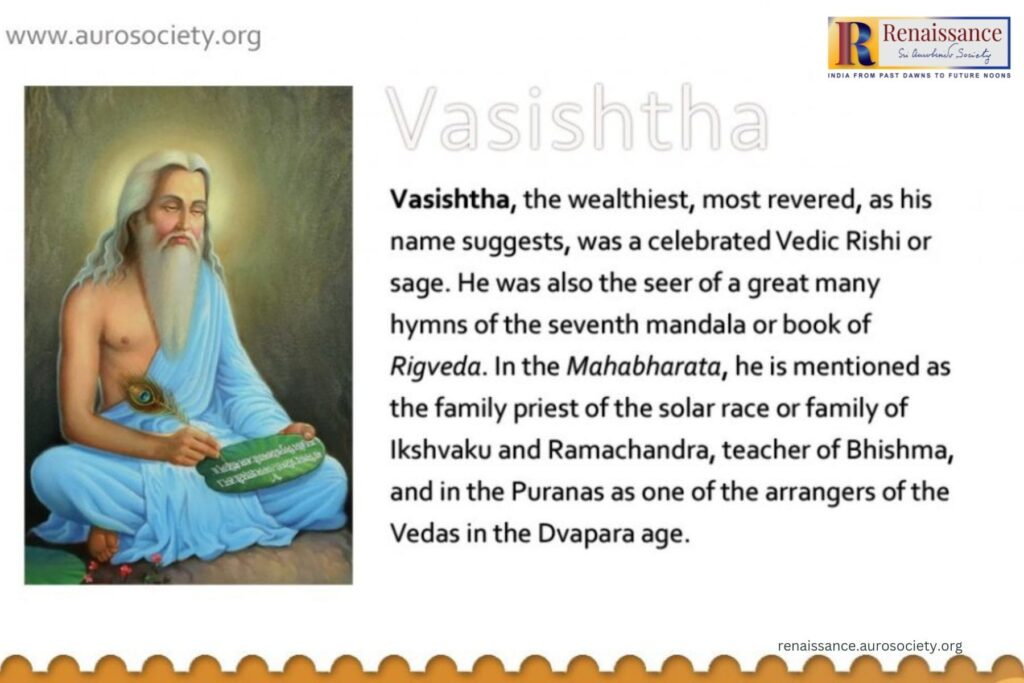
When he came near to the door, he heard the Brahmin talking with his wife, and as his own name was mentioned, he stopped to listen. Saintly and pure, full of forgiveness for him were the words he heard. This touched the king’s heart. Full of repentance he threw away his weapon, then went in and bowed at the hermit’s feet.
“Brahmarshi,” Vasishtha welcomed him affectionately, when seeing the king’s present state of mind.
“Why did you not acknowledge my Tapasya before?” Vishvamitra asked humbly.
“Because,” replied Vasishtha, “you claimed the title of Brahmin in the name of an arrogant power, but now that you are repentant, you come in the true spirit of a Brahmin.”
Vasishtha knew how to speak the truth without fear. And he also spoke it without rancour.
Is it not noble to speak the truth in this way, even when there is some danger in doing it?
Besides, very often, things turn out better for those who brave this danger than it might have seemed at first. The success of falsehood is only short-lived, whereas in most cases, to be sincere is the cleverest thing to do.

One morning, the Emperor of Delhi sat on his throne to confer honours on those he considered worthy. As the ceremony was drawing to a close, he noticed that one of the people he had summoned, a young man named Syed Ahmed, had not yet made his appearance.
The emperor stepped down from his throne and got into a sedan chair which was used to carry him through his vast palace.
Just at that moment the young man hurried in.
“Your son is late,” said the emperor to Syed’s father, who was his friend.
“Why?” asked the emperor, looking sternly at the young man.
“Sire,” Syed replied frankly, “it is because I overslept.”
The courtiers looked at the young man in amazement. How dare he admit so shamelessly to the Emperor that he had no better excuse? How tactless of him to speak like that!
But the Emperor, after pondering a moment, felt respect for the young man because of his sincerity; and he gave him the necklace of pearls and the jewel of honour to place on his brow.
Such was the reward of Syed Ahmed, who loved the truth and spoke it to all, prince or peasant.

Straightforwardness of Speech and Actions
It is quite certain that to be able to tell the truth without difficulty, it is best always to act in such a way that we have no need to conceal anything we do. And for that, in our actions of every moment, we should remember that we are in the presence of the Divine.
For straightforwardness of speech also demands straightforwardness of actions; and a sincere man is one who shuns all falsehood in what he says and all hypocrisy in what he does.

At Amroha a special kind of pottery is made, known as Kagazi pottery, decorated with silver designs. These pots are very pretty, but they are so light and fragile that they break with the slightest use. Although they look just as serviceable as any other earthenware, they are only good to look at.
Many people are like Kagazi pottery. They have a beautiful appearance; but if you try to put them to any kind of test, you will see that everything about them is ornament. Do not put the slightest trust in them, for this would be too heavy a weight for their fragile nature to bear.
A Brahmin sent his son to Benares to study under the guidance of a Pundit.
Twelve years later the young man returned to his home town, and many people hurried to see him, thinking that he had become a very profound scholar. They placed before him a book written in Sanskrit and said:
“Explain the doctrine to us, honourable Pundit.”
The young man stared at the book. In truth, he did not understand a single word of it. In Benares he had learnt nothing but the alphabet. And even then the letters had been written very large on the blackboard, so that by seeing them every day he might get them little by little into his head.
So he remained silent in front of the book, his eyes brimming with tears.
“O Pundit,” said the visitors, “something has touched your heart. Tell us what you have found in the book.”
“The letters,” he said at last, “were big in Benares, but here they are small!”
Was not this Pundit like the Kagazi pots?

Sincerity: An Arrow to Destroy Falsehood and Hypocrisy
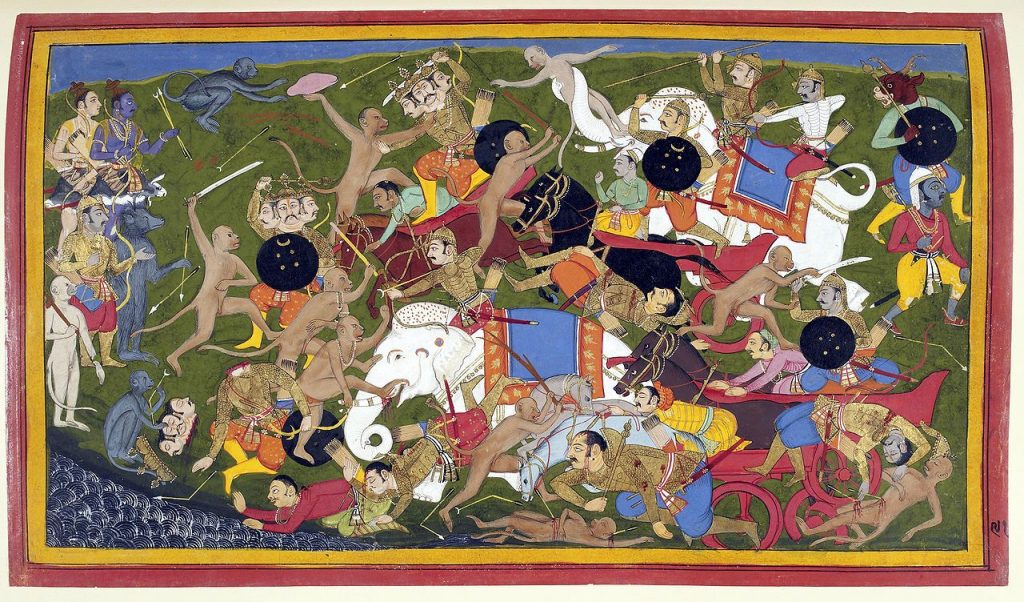
The monkeys and bears of Hanuman’s army fought for Lord Rama and his brother Lakshman against Ravana the ten-headed demon.
Weakening under the blows of the warriors who were attacking him from every side, Ravana made use of his magic power.
Suddenly, at his side, among the demons, many Ramas and many Lakshmans magically appeared. They were in truth nothing but false and deceptive appearances, but the monkeys and the bears, taking them for real people, halted in confusion: how could they continue the fight and go on throwing trees and rocks against Rama and Lakshman, their beloved leaders?
Seeing their dismay, the demon Ravana gave a smile of cruel delight. Rama smiled too: what pleasure he would take in destroying such a falsehood, in exposing the trickery, in gaining victory for the truth! He fitted an arrow to his mighty bow and shot. The arrow whizzed through the misleading shadows, which immediately dissolved. At last Hanuman’s army could see clearly and their courage revived.
Similarly, every straight word from a sincere man is like an arrow that can destroy much falsehood and hypocrisy.

~ Cover image: Shahla Sayeed


